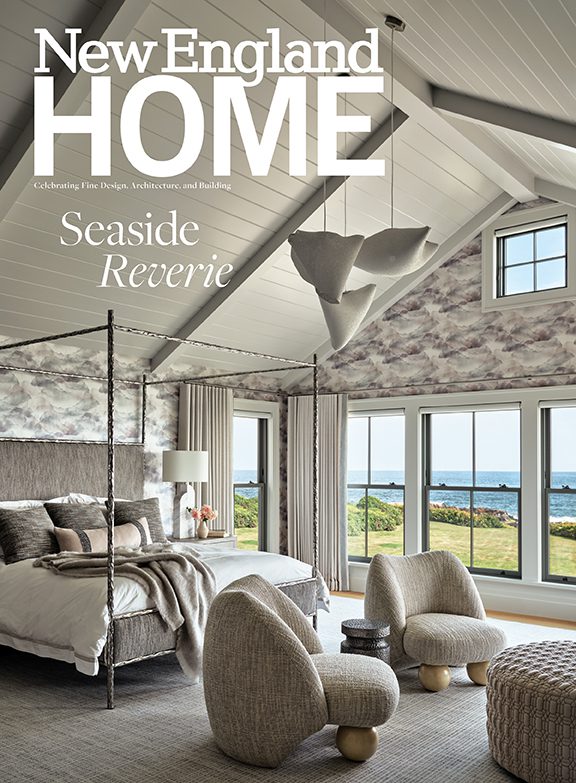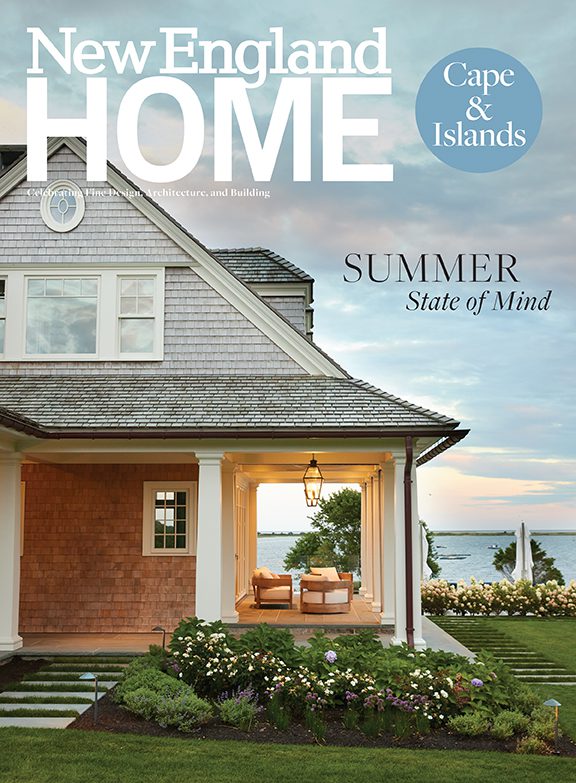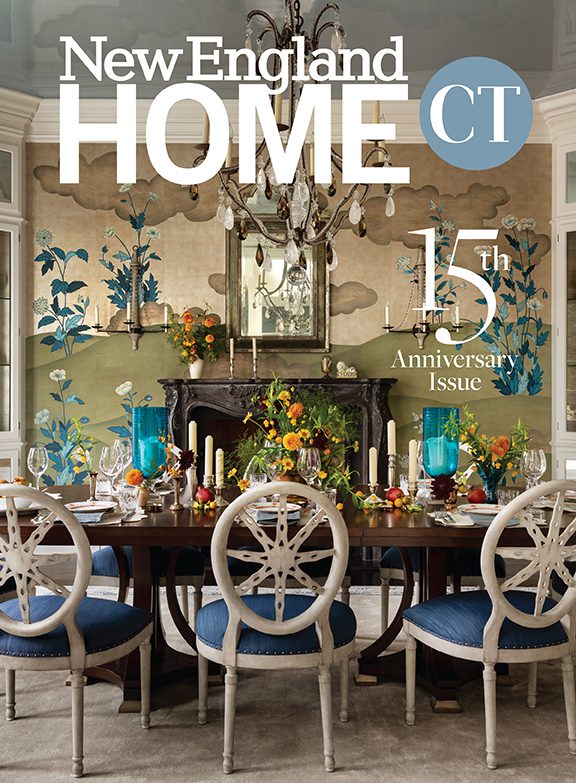Artist Emelia Dubicki
January 29, 2021
Emilia Dubicki’s abstract paintings hint at reality—whether intentional or not.
Text by Bob Curley
Artist Emilia Dubicki doesn’t need to travel far in search of inspiration. She finds it in abundance right outside of her seaside New Haven studio and in mental impressions gathered with casual intention on bike rides along the Connecticut shoreline or while gazing at the artificial canyons of Manhattan.
“Water is a big part of my work,” says Dubicki, and while her abstract paintings don’t usually reference a specific place or scene, nearby Morris Cove informs her frequent preference for working in shades of blue and green. “I just take it all in, whatever the atmosphere is, and hopefully a painting happens at some point.”
Dubicki paints every day, but while the schedule may be regimented, her process is anything but. “The work comes from my subconscious,” she says. “I just pick up my brushes and see where it goes.” The only thing calculated are the dimensions of the painting—the larger, the better.
Commissions tend to be inspired by paintings that clients have previously seen at the Fred Giampietro Gallery in New Haven, where Dubicki is represented. “I look at commissions as a continuation of works that I already have started,” says Dubicki.
Deeply layered and continuously refined, Dubicki’s oil-on-canvas artwork, full of bold brush strokes and fractal patterns, emerges both enigmatic and familiar.
“I like it when people say, ‘Oh, I see a puppy,’ ” Dubicki says. “I like when people look at a painting and don’t just walk past it. It’s great to see what people gravitate toward because it feels like they are already connected to the work.”
Abstract art can sometimes seem spare, but Dubicki’s work catches the eye right on the border of recognition—even when it’s not based on anything real at all. The artist delights, for example, when a viewer guesses that a painting enigmatically titled Short Summer hints at a sailboat gliding past a glacier, revealing that the work was a visual manifestation of a W.S. Merwin poem, “Remembering a Boatman.”
“I sometimes look at a painting as a poem,” she says. “Sometimes a poem can be just ten lines but a powerful ten lines.”
Editor’s note: Emilia Dubicki is representedby the Fred Giampietro Gallery, New Haven, giampietrogallery.com.
To see more of her work, visit emiliadubicki.com.
Share
![NEH-Logo_Black[1] NEH-Logo_Black[1]](https://b2915716.smushcdn.com/2915716/wp-content/uploads/2022/08/NEH-Logo_Black1-300x162.jpg?lossy=1&strip=1&webp=1)













You must be logged in to post a comment.